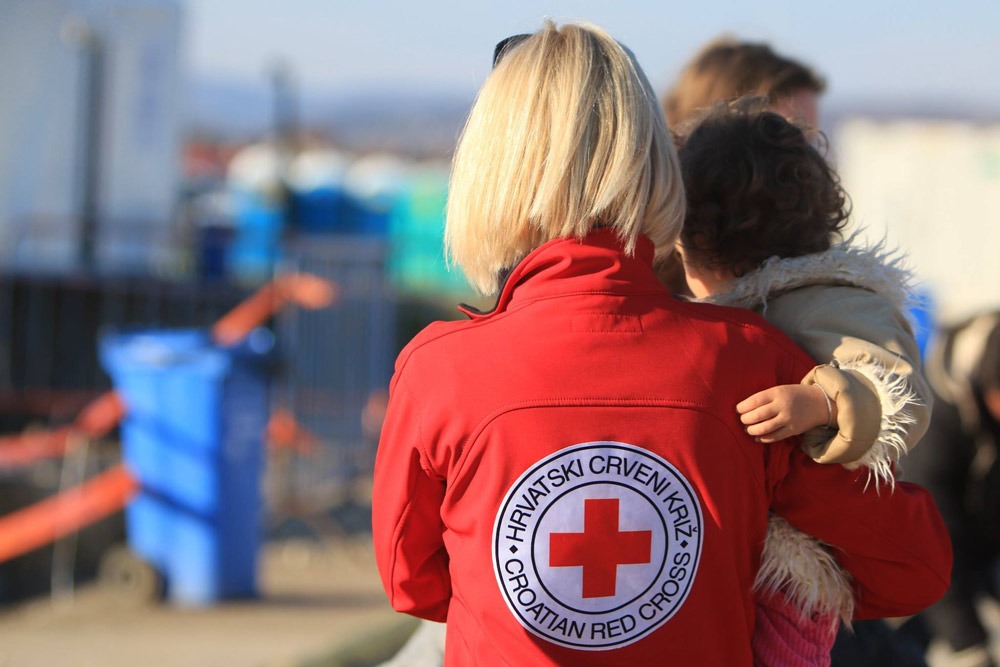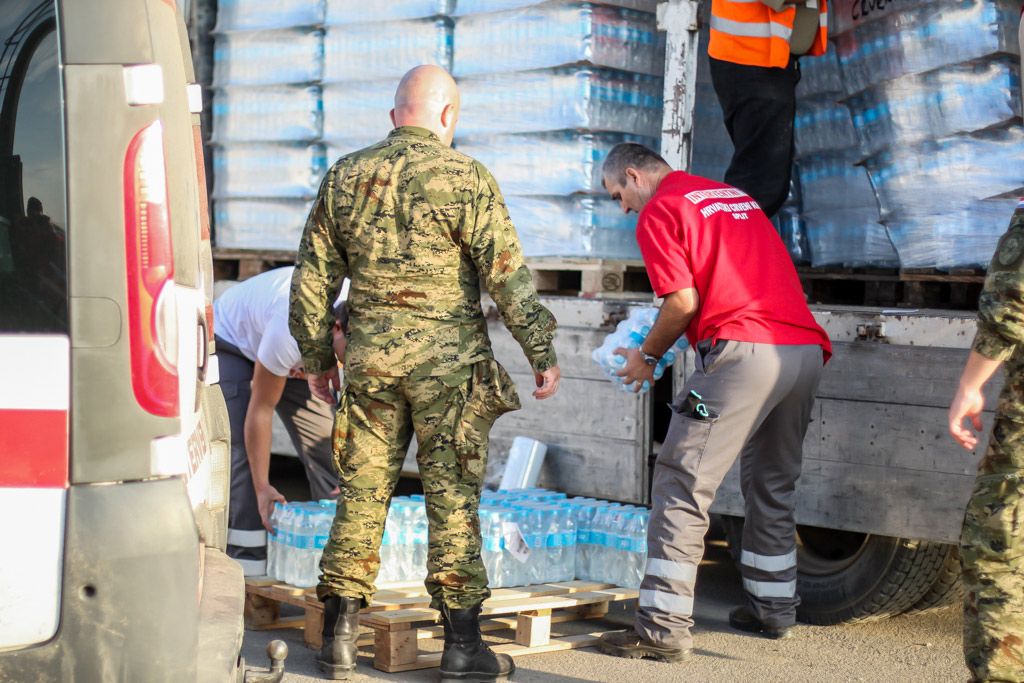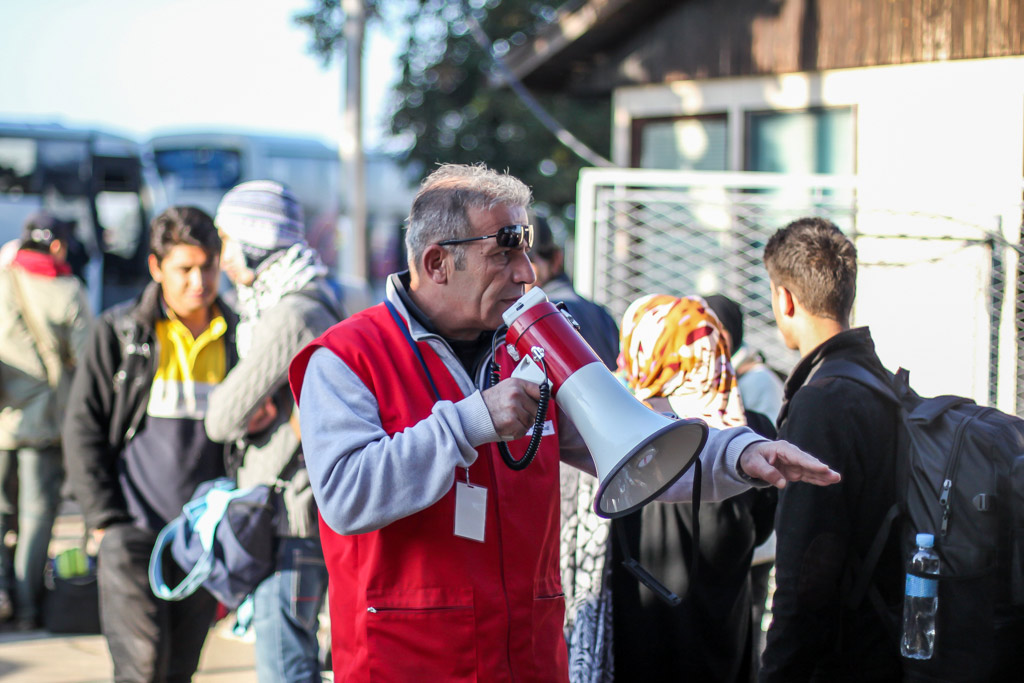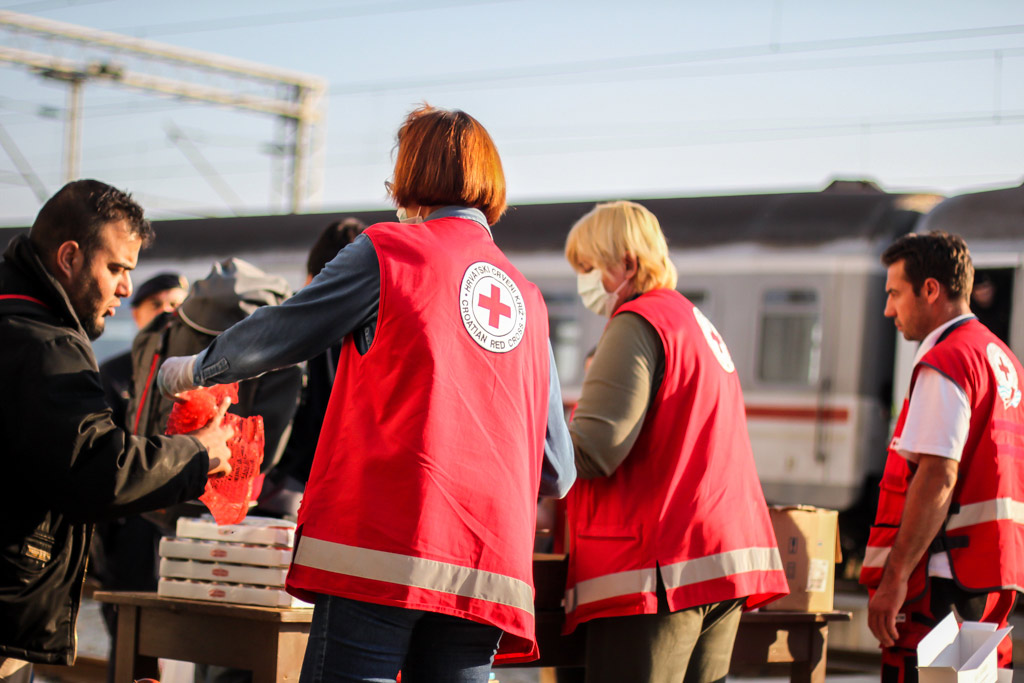The interview subject is Mirela Zorić, Red Cross Split employee who helped people during hardships on their journey from the ruinous war-torn land of Syria: in the migrant camps on the outskirts of inner Europe; from where people continue their travels towards their desired destination; to build a new life far from the regime-controlled states, bloody militias, overwhelming poverty and its disastrous effects: hunger and hopelessness. She provided care in camps since September 2015, when a migrant “crisis” first appeared in media, while the humanitarian crisis was occurring on the south-eastern borders of the European Union. This article is both in service of acquiring historiographical knowledge about their work; in order to keep their words and deeds from vanishing without being written down (by students); but also, being written down, maintain it can educate the reader about the state of affairs of working in a camp, as seen from the eyes and thoughts of a Red Cross volunteer.

How did you join in the quest to help persons that seek asylum and those who are called migrants? What motivates, or did motivate you?
First off, I am an activist for the Tracking service in the Red Cross and I was part of the Emergency team of Red Cross Split. In the beginning of the “migrant” crisis I volunteered to help in a camp; in Slavonia (the eastern region of Croatia). What drove me were the principles of the Red Cross: humanity, impartiality, neutrality, independence, volunteering, unity, universality. My motivation to work is derived from the fact that I am a small part of the biggest humanitarian movement in the world, where I have a chance to provide help to those who need it. In that line of work, focus is put on those most vulnerable, whose state of being depends on the help of others.
How did you join in the quest to help persons that seek asylum and those who are called migrants? What motivates, or did motivate you?
First off, I am an activist for the Tracking service in the Red Cross and I was part of the Emergency team of Red Cross Split. In the beginning of the “migrant” crisis I volunteered to help in a camp; in Slavonia (the eastern region of Croatia). What drove me were the principles of the Red Cross: humanity, impartiality, neutrality, independence, volunteering, unity, universality. My motivation to work is derived from the fact that I am a small part of the biggest humanitarian movement in the world, where I have a chance to provide help to those who need it. In that line of work, focus is put on those most vulnerable, whose state of being depends on the help of others.

Can you describe the experience of working in a camp? Where did you provide assistance?
Since September 2015, volunteers and activists of Red Cross Split took part in work of transit camps for migrant people – Opatovac and Bjeliša in Slavonski Brod, a city in Slavonia. Those who were involved had to be educated by an emergency team for crisis and catastrophes, after which they were delegated to camps; each trainee being a part of an 8 to 12 person team. From all over Croatia, Red Cross volunteers did 192 852 hours of providing help in camps – people from Split took part with over 3000 hours. In Slavonski Brod, I personally helped once a month, staying for a week to work in a 12 hour shift; of which I spent 5 days a week in camp.
Who needs help in the camps? What problems do they face?
In the camps people arrive for various reasons, but most of them had to leave their home because of a dangerous military or economic situation. During the long journey to Croatia, their future was uncertain because of many problems they faced on the road, which consisted of hardships while trying to satisfy their basic needs, while also dealing with social and cultural stigma.

How do you help them? Could you describe volunteer activity in the camps?
Our work was based on reception of the people; while detecting their basic needs on arrival – status of their nutrition and overall health. But, deeper problems are revealed during face to face conversation – upon which we act if we are legally (and practically) able to do so. In warehouses, volunteers prepared meals that were given to the people in the reception center, while other warehouses stored shoes, clothes and blankets. Over 615 tons of food and 581 000 liters of water were distributed and 178 000 blankets given.
You were involved in the Tracking Service which cares about people separated from their families. Most of the separated people are children. So, what are the duties of this Service?
In a camp, there is a very obvious and easy to notice spot: that’s where the Tracking Service point is kept. From there, a person can get information on how to get in touch with other family members. Also, there are multi language billboards that help spread the info. Why do people get separated? There are various causes. Sometimes, the transport was overcrowded and there was no space for the whole family. Sometimes, people are kept waiting (and thus separated) because of evaluation made by authorities at the border. Most of the children were identified as separated from family only once they reach the Croatian border. In those cases, while collaborating with the Center for Social Care, with help from translators, the Tracking Service talked to them; with a principle in mind that each case is individual and deserves attention in its own right. While awaiting their reunion with other family members, a person in the camp was accommodated in a special area, where only Red Cross employees had access. After families were united, they would leave the camps together. Separation of children would happen often. During the “Crisis”, the Tracking Service was successful in solving 1587 cases of separated families.
But, one must not forget that being separated on a perilous journey leaves traces on the human being, which needs a special approach in order to provide help and adequate care. That is why psychosocial help is provided by professionals, who care about the separated persons, while also trying to detect if someone needs help, even if they did not personally request it. Why wouldn’t one ask for help? Because they have lived through both physical and mental hardship, with other possible reasons being cultural or domestic belief or custom, or maybe some other cause that held them against asking or thinking – we are unwell; we need help.

What problems do you face while providing aid?
As caregivers, our first barricade is the lack of translators; except of Arabic, where we had help from Abdul Hamid Mostafa, a man from Syria who has been living in Split since the 1980s, also a Red Cross volunteer. Cultural barriers were overcome by building trust, even though sometimes we could not reach a compromise, especially with men (let’s say, in a case where a family member insists that a pregnant lady must be examined only by a female gynecologist, even though there is danger for both the child’s and the woman’s life). Problems also occurred between people from different nations, so we did our best to avoid accommodating together Afghan and Syrian nationals in order to circumvent potential incident or a fight. Also, I need to note that we, as caregivers were exposed to stressful situations. To deal with them, we were trained in various levels of stress relief techniques, because – in order to adequately help others, a volunteer ought to be responsible towards himself and the team.
Did you experience misunderstandings regarding your job? How Can we overcome them?
I can easily say that misunderstandings did exist regarding aid and caring for migrants. People asked me “Why are you going to the camp?” or “You are helping the terrorists”, or even “Why are you helping them, instead of our children?” Superstitions are out there, but educating the public about our work regarding migration and integration can make small steps towards the toppling of those superstitions.
The Interview was conducted by students of philosophy from Split, Croatia – Filip Škifić and Luka Donadini, translated by Luka Donadini; lectured by student of English language and literature, and friend Damir Sirković.






